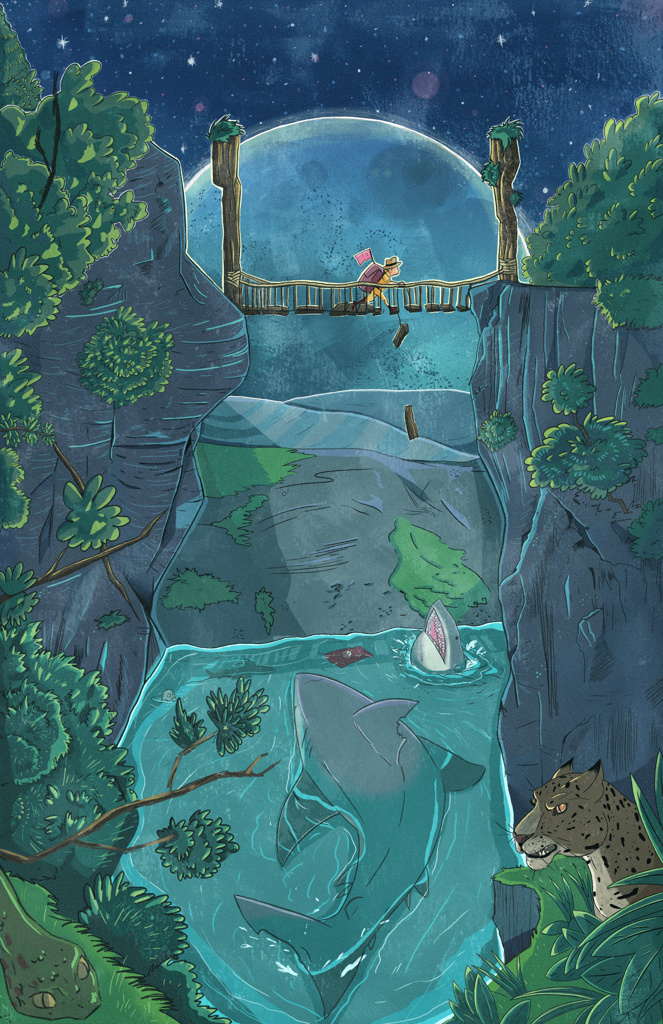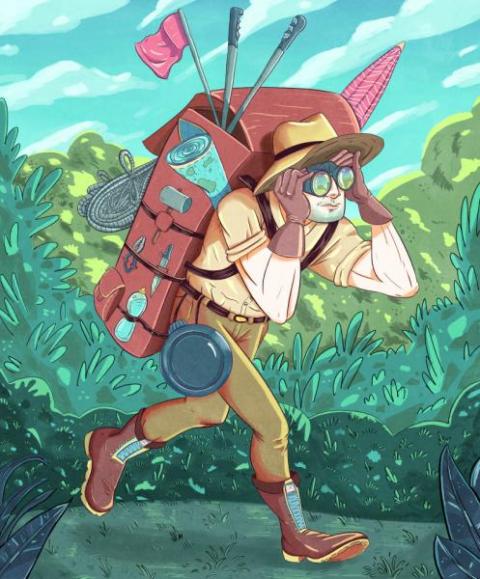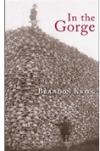Stubbornly Enamored with Existence

Thoreau: A Writer’s Journal is the book I loaned Andrew when we were first becoming friends. That day he confessed he’d been clean a while and his girlfriend had broken up with him. He was having a hard time. He was worried he’d use again. It seemed to pain him to tell me. He was one of those sweet men who often seem to think they are imposing on the world. The book had meant a lot to me and I loaned it to him hoping to never get it back, hoping it might help somehow. Of course, I wished I had more to give.
I never got it back. After a while, I found myself thinking about the book so often I bought another copy. Though I love Thoreau’s journal entries, they were not what I needed to read again. It was the book’s preface by Laurence Stapleton. What she had helped me understand was that Thoreau exalts in exact particulars, not types. That it is through such particulars he finds the world inexhaustible:
"But in observing the ever-new, the “other half” of any substance shown in its rhymed appearances, reflected in water or appareled in ice, differently related to surrounding objects in moonlight or in haze, Thoreau is not in search of the idea or archetype of these phenomena…He is a veritable seeker of thisness; the individual, unduplicatable object can be discerned in its uniqueness when any seeming repetition of it shows it slightly changed[1]."
The world seems exhaustible. I don’t care to count the ways. They are counted and recounted hourly—necessarily, I guess, if not addictively. On screens, I hardly need to add. Screens attached by little portable umbilical cords to distant reactors, mines, slavery and wage-slavery, ecological disaster.
I’m sick of the cycle of righteousness and despair I’m caught in that never for a moment mitigates my utter dependency for food, clothing, heat, and transport on resource extraction. I want to inhabit my whole life: the wonder of witnessing the “individual, unduplicatable” and the terrible beauty of its vulnerability in light of our systems of use. At least refuse simplification, try to inhabit complexity. Jane Bennett almost convinces me that inhabiting one’s life in this way is the beginning of a practice of acting ethically:
"…it seems to me that presumptive generosity, as well as the will to social justice, are sustained by periodic bouts of being enamored with existence, and that it is too hard to love a disenchanted world. Affective fascination with a world thought to be worthy of it may help to ward off the existential resentment that plagues mortals, that is, the sense of victimization that recurrently descends upon the tragic (or absurd or incomplete) beings called human[2]."

I try to believe her. I try to believe William Cronon that wilderness is with us always, even in the places we level and vent into, that recognition of the wilderness in our surrounding woods and fields, rivers and marshes is necessary to learn to honor it where we currently manipulate and desecrate it most:
"Wilderness gets us into trouble only if we imagine that this experience of wonder and otherness is limited to the remote corners of the planet, or that it somehow depends on pristine landscapes we ourselves do not inhabit. Nothing could be more misleading. The tree in the garden is in reality no less other, no less worthy of our wonder and respect, than the tree in an ancient forest that has never known an ax or a saw—even though the tree in the forest reflects a more intricate web of ecological relationships[3]."
How do we respect the “individual, unduplicatable,” the wilderness near us? I don’t know yet; I’d like to learn. It seems likely that if we can’t see it, we can’t respect it. And I am willing to entertain the idea it will be delight, in the end, that teaches us to be, as Roderick Nash advocates, “members in and not masters of the community of life[4].”
Years into our friendship, Andrew, already relocated to Grand Rapids, drove down to visit me. We dropped off his truck at the D Avenue bridge and drove my car up to Mosel Avenue, to a little park along the Kalamazoo. We were daring to float the river. We knew a few years earlier a pipeline burst at Talmadge Creek, causing one of the worst inland oil spills in U.S. history. I told him of a picture I’d seen recently in the Kalamazoo museum, of the river in the 60s or 70s thickly tessellated with fish dead from paper-mill chemicals. I steadied the kayak as he lowered himself down the steep bank, careful not to touch the water. Then, one foot in the kayak’s wobbly bottom, I pushed off and plopped down behind him.
Magically, we rode the current’s swiftness, each paddling with half an oar, laughing as we narrowly threaded a gap in the heavily-tarred log-beams of the railroad trestle. Careful to avoid overhanging branches dipping into the current, we saw a muskrat on the bank drinking. Soon we passed one part of the hulking abandoned paper mill at Parchment, half its painted white plate-glass smashed by vandals. We pushed off a shallow sandbar, our oars pressing into round pea-gravels and long waterweeds, just scraping the fin on the kayak’s bottom. Andrew told me about his new girlfriend, about years ago choosing Pentecostal boot camp over jail, about trying as hard as he could to convince himself of a Christian god and failing, about how hard it was when his father died and how he still wanted to use sometimes. All in all, he seemed really good. It made me happy. We pulled up to an island in the river for him to piss. I sat in the kayak holding on to some gnarled roots. “You could have just left me here,” he said, returning through the trees. Then he laughed in a way that made it clear to me he knew I wouldn’t.
Soon, we passed under the smooth grassy hill of the landfill on the East side of the river; on the West, the wooden viewing platform of the Nature Center familiar to both of us. Just beyond it, we glided by a man in white t-shirt wading up to his chest, arms raised above the water reeling in a thrashing bass, the ash of his cigarette shaking down from his mouth onto the river as he yelled to us: “This is number 38 today!” Then he added, with a nod back over his shoulder toward his wading teenage son: “He caught most of ‘em! Don’t worry, we threw ‘em all back!” His smile was arch with the superiority of secret knowledge.
We agreed we should come back some time to fish like the man and his son. I sincerely hope some time we will. The kayak slipped under the D Avenue bridge and we dragged it out at the boat launch, deflating it into a pack I carried out on my back. Andrew said he’d been volunteering to pull invasive garlic mustard, had saved some and blended it into pesto he’d eat again later that night when he got back to G.R. We paused on the bridge railing to look down into the water, clear enough to see some hauntingly large fish lazing in and out of the shadows of the concrete stanchions.
[1] Stapleton, Lawrence, ed. Thoreau: A Writer’s Journal. Dover: 1960. (page xvi)
[2] Bennett, Jane. The Enchantment of Modern Life: Attachments, Crossings, and Ethics. Princeton UP: 2001. (page 12)
[3] Cronon, William. “The Trouble with Wilderness.” Environmental History, vol.1, no. 1, 1996, pgs. 7-28. (page 24)
[4] Nash, Roderick. “Power of the Wild.” New Scientist.com. 30 Mar. 2002.
Recommended
Nor’easter
Post-Op Appointment With My Father
Cedar Valley Youth Poet Laureate | Fall 2024 Workshop







